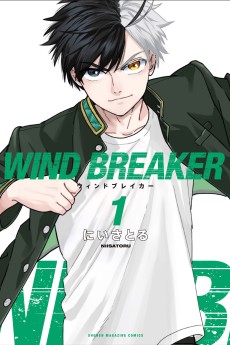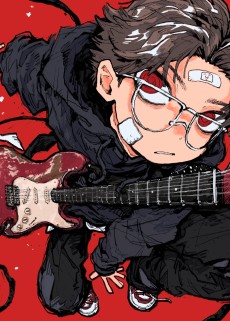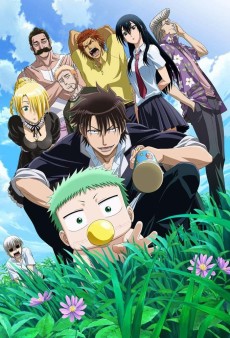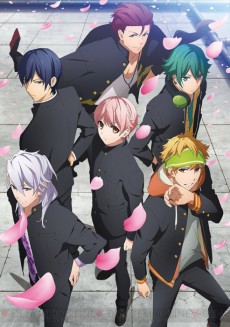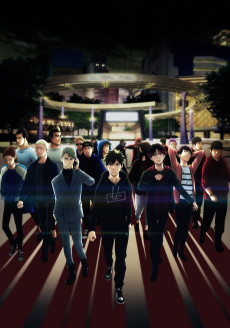WIND BREAKER
STATUS
COMPLETE
EPISODES
13
RELEASE
June 28, 2024
LENGTH
24 min
DESCRIPTION
Where the average scores are the lowest, but the fights are the strongest. Furin High School is renowned as a super school of delinquents. Haruka Sakura, a first-year student, came from outside the city to fight to the top. However, Furin High School has become a group that protects the town called the “Chime of the Wind Breaker” – Bofurin. The heroic legend of high school delinquent Sakura begins here!
(Source: Crunchyroll)
CAST

Haruka Sakura
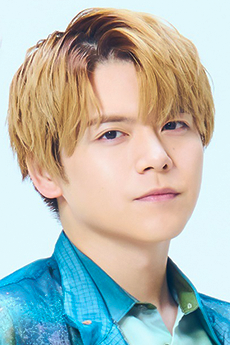
Yuuma Uchida

Hayato Suou
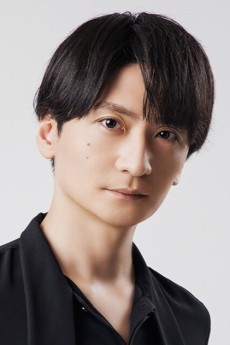
Nobunaga Shimazaki
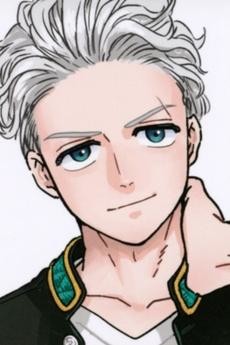
Hajime Umemiya
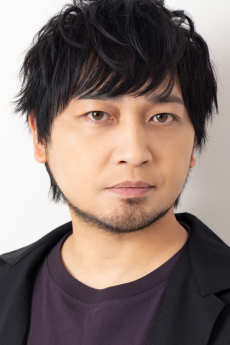
Yuuichi Nakamura
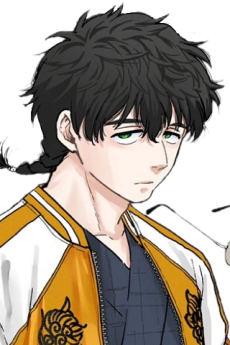
Jou Togame
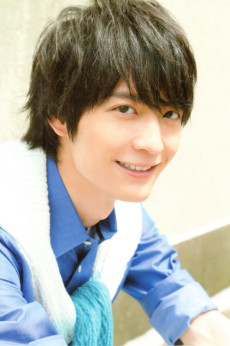
Yuuichirou Umehara
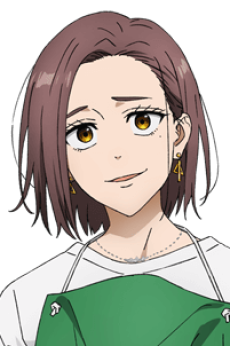
Kotoha Tachibana

Ikumi Hasegawa
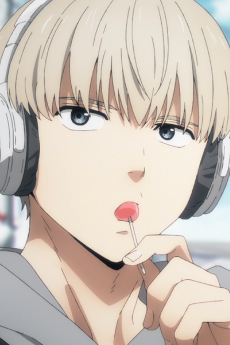
Ren Kaji
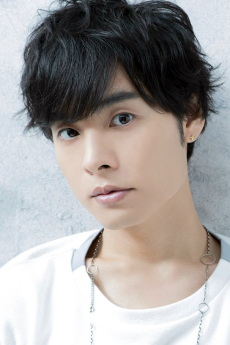
Nobuhiko Okamoto
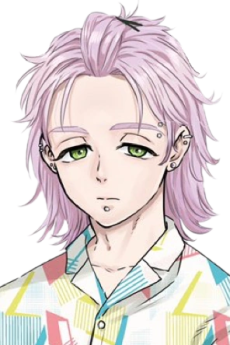
Mitsuki Kiryuu
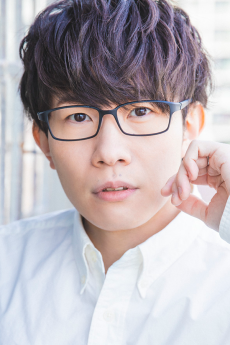
Toshiyuki Toyonaga
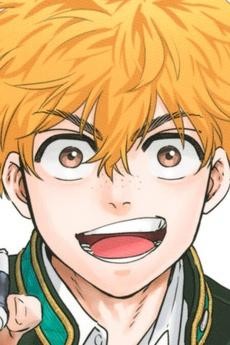
Akihiko Nirei
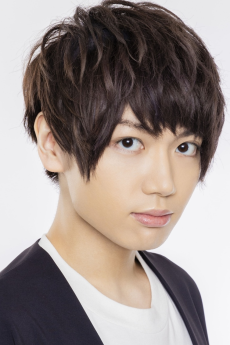
Shouya Chiba
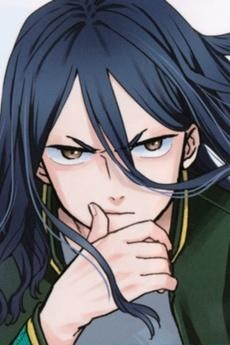
Kyoutarou Sugishita
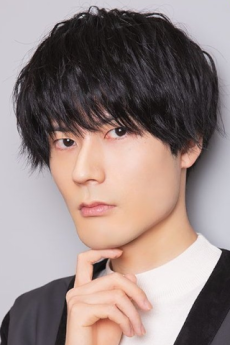
Kouki Uchiyama
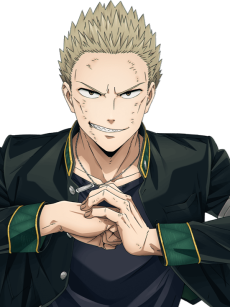
Touma Hiragi
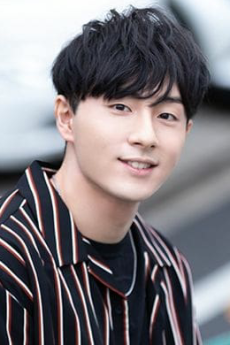
Ryouta Suzuki
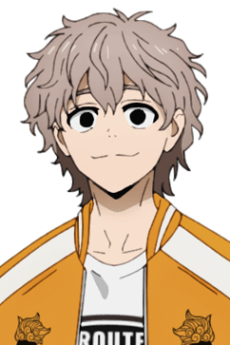
Chouji Tomiyama
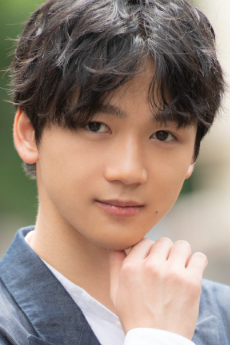
Kikunosuke Toya
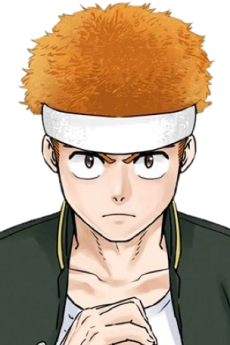
Tsugeura Taiga
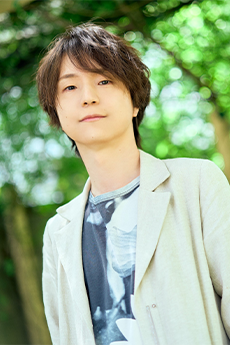
Kengo Kawanishi
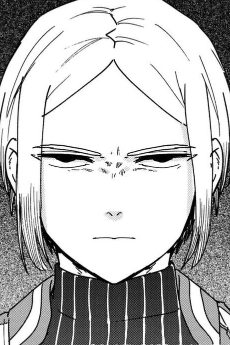
Kouta Sako
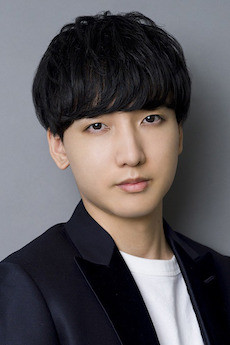
Chiaki Kobayashi
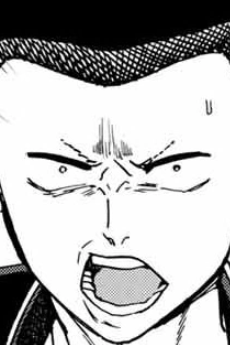
Takeshi Enomoto
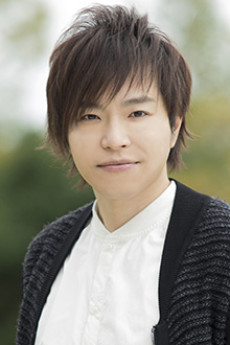
Taishi Murata
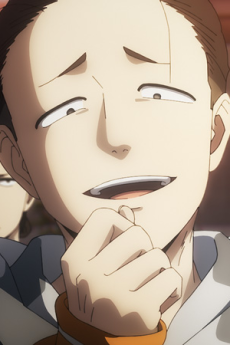
Minoru Kanuma
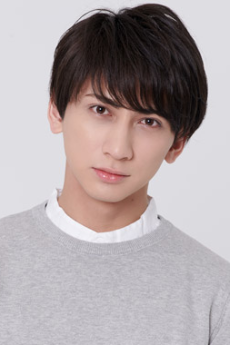
Hiromu Mineta
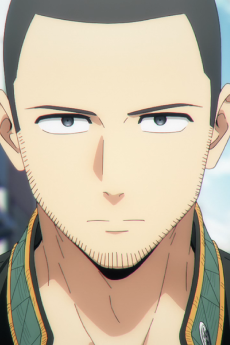
Jien Yanagita
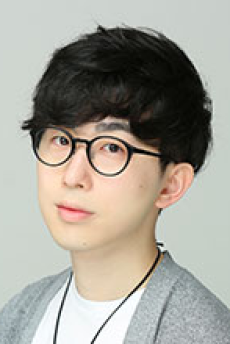
Yukiya Matsui
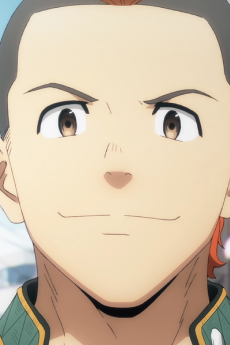
Youdai Matsumoto
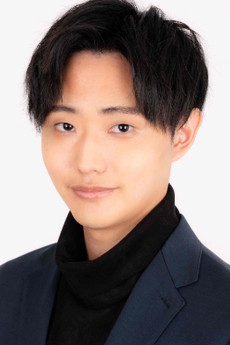
Youhei Matsuoka
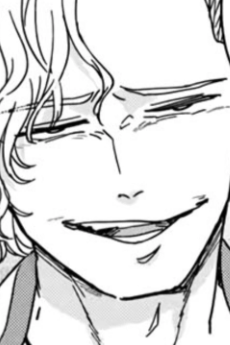
Yukinari Arima
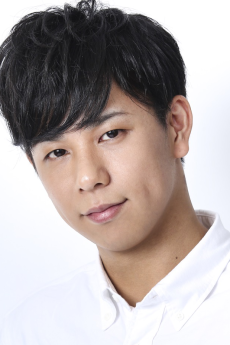
Masaaki Mizunaka

Masaki Anzai
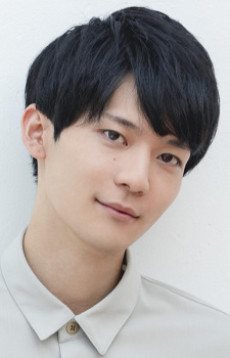
Shougo Sakata
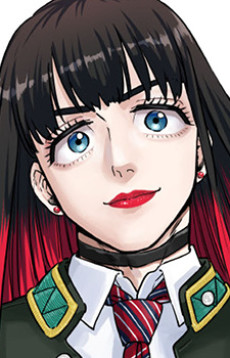
Tasuku Tsubakino
EPISODES
Dubbed
RELATED TO WIND BREAKER
REVIEWS

melamuna
80/100A refreshing action anime that stands out in the midst of mega-hit shows, but has a long way to go to be best.Continue on AniList

In the midst of the overcrowded Fantasy animes in Spring 2024, from the comeback season of My Hero Academia and Demon Slayer, heavy Isekai hitters such as Mushoku Tensei, Slime, and Konosuba airing simultaneously this season that pleases the hardcore Isekai fans, newcomers arrive as Kaiju No.8 takes the spot for newly come Shounen audiences, and oldtime classics such as Spice and Wolf are returning for a brand new reboot of the series. One anime that stands out from the rest, earning the #7 spot for the most popular anime of Spring 2024 (data from Anilist on May 31, 2024), WIND BREAKER is an anime that you wouldn't expect standing up firmly amidst the heavy hitters this season, but through it's refreshing and intriguing plotline, it is bound to grab people's attention and hold firm into it for longer. ***
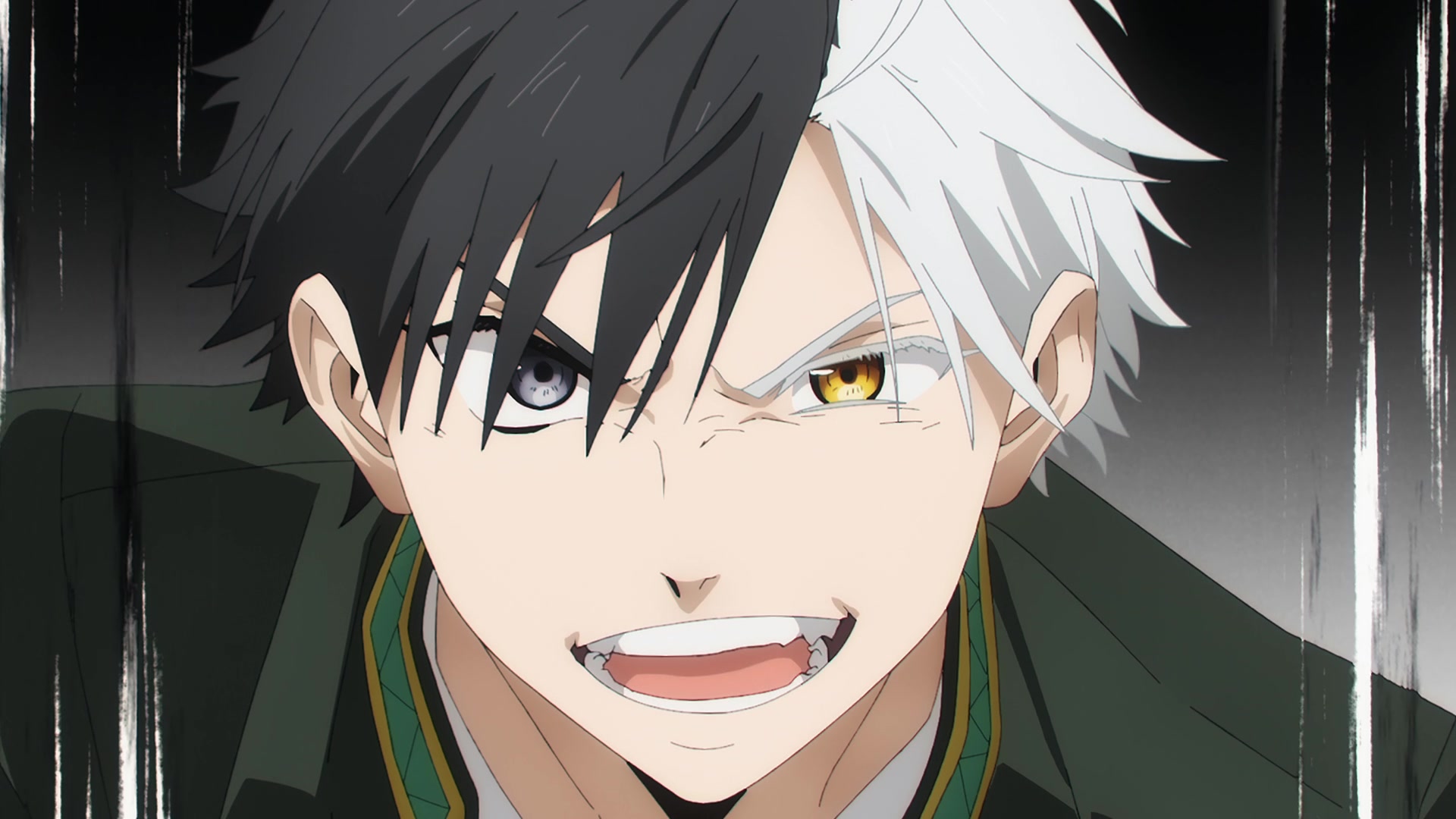
WIND BREAKER offers a refreshing yet familiar plotline mixing high school anime tropes and delinquent tropes, forming a blend of refreshing plotlines and sequences that went on a different path from your usual action anime. We follow the main character, Haruka Sakura (Yuuma Uchida), through his journey of softening up from the tense environment he used to live in. Sakura is not the most interesting character in the series, especially when his motivations and the attention of the series aren't mainly focused on him, as he's mostly being used as a vessel to progress the plotline. However, the supporting characters of this series, mainly Togame (Yuuichirou Umehara), are a huge standout even with their short presence due to their convincing character revelations. Other side characters in the show are fun and watchable in their own right, but they're not a huge standout since they didn't get enough screen time to fully flesh out their own characters. ***
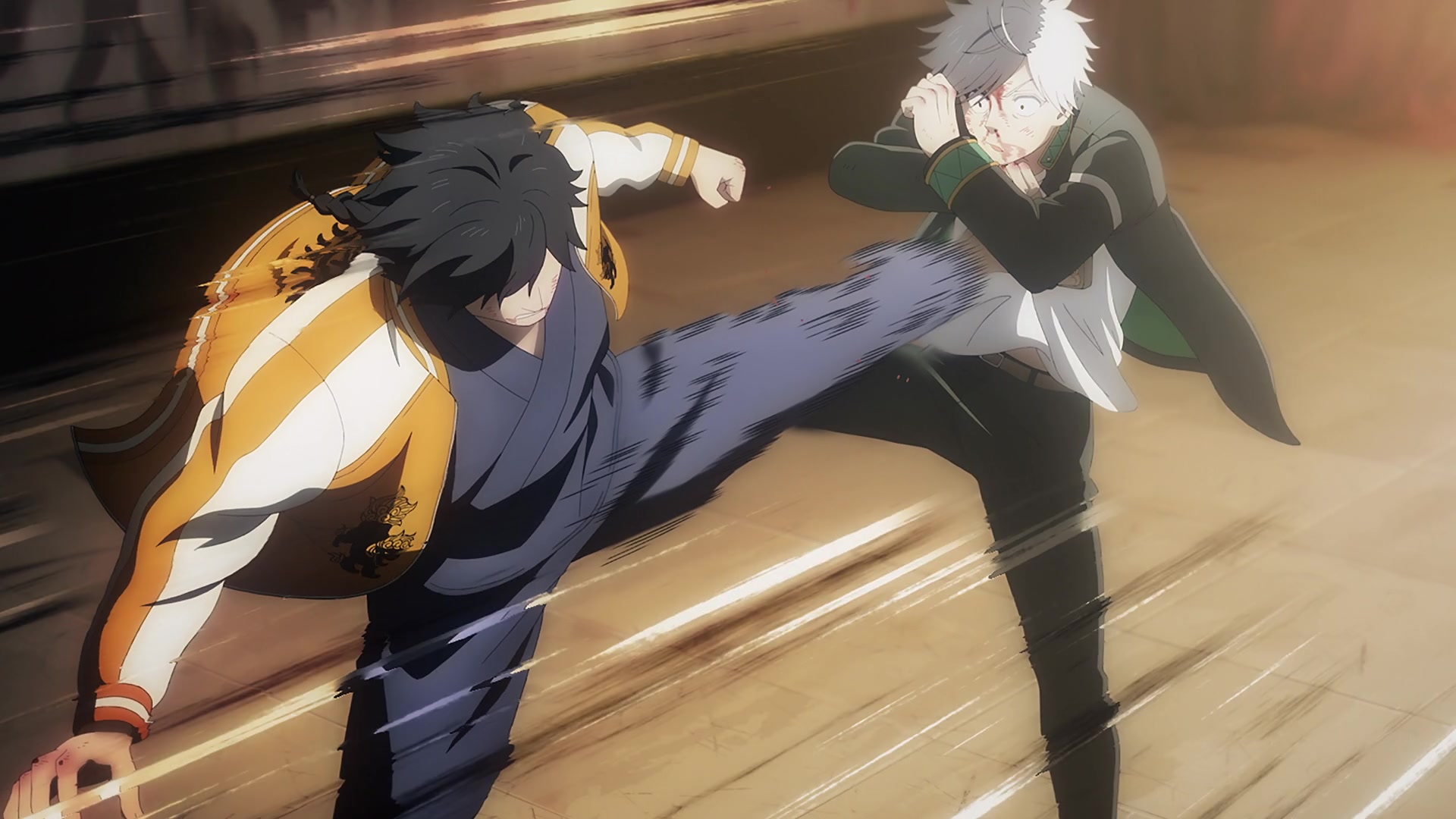
One huge standout of the series that definitely brings people to watch this series is its action. The anime scene is filled with power fantasies and weaponry combat that's fairly entertaining in its own right, but there is a huge underrepresentation of hand-to-hand combat in recent anime, which this series brings to the forefront of the action-oriented sequence of the show. Not only that, the animation might not rival that of this season’s heavy hitters, but it still stands out on its own with the stylistic hand-to-hand fighting sequences where you can actually feel the weight of the punches. In addition, it doesn't take its actions nonsensically, as the punches of each character reveal their background and motivation for being in the position that they are, a great method of storytelling in an action genre. ***
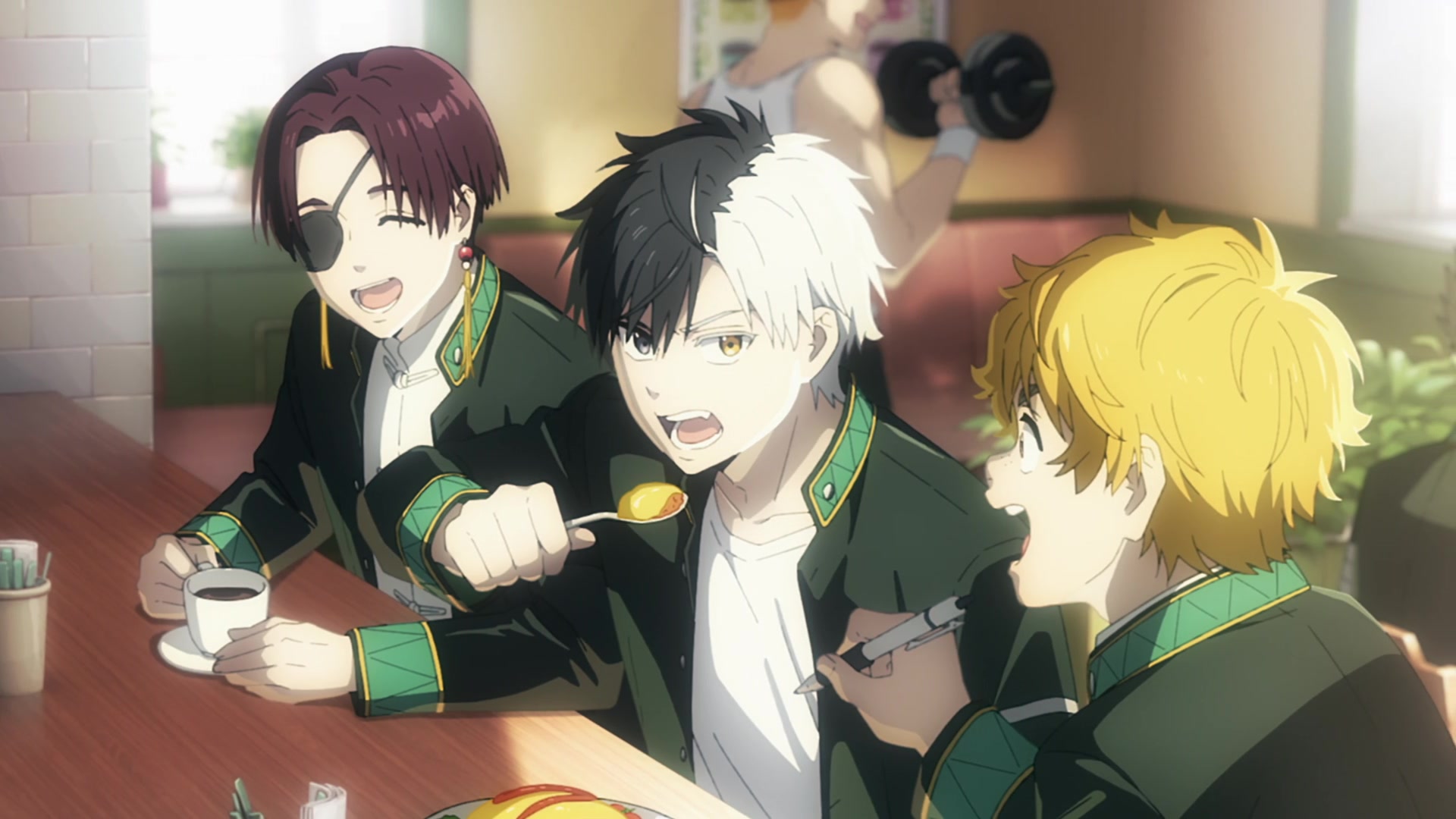
Despite all of that, the series still has a long way to go when it comes to its story. It might be really entertaining for now, but it's the type of series that I will eventually forget about the plot and characters. The first few episodes are a little slow and can be out of place sometimes, not to mention where the series takes on a drastic turn with its story, which I would argue is where the series truly shows its real strength. However, the series hadn't convinced me to care or leave a lasting impression on me once the series ended, as there are still elements of the show that they presented that have a lot of potential for story but have never been used.
In those cases, a second season of WIND BREAKER might be glossed over, but the series already has the right ingredients from its intriguing and stylistic hand-to-hand action sequence, more exploration in its storytelling from the world they've built, and greater character growth for these characters. If you have all of these things and cook them well, it might turn the future of this series from good to great. ***

OrielBel
75/100Like its protagonist, it has a big heart and alot of potential but still has some maturing to doContinue on AniListThe best way to look at Wind Breaker is as a sort of postmodern delinquent anime. I know that sounds high minded for an otherwise simple show, but Wind Breaker's main goal is to directly interrogate the genre's relationship between strength, violence and self determination. In a romantic sense, the Japanese delinquent isn't a lowly crook but instead are rebels against a society that seeks to hold them down. The fantasy comes from the idea that once you're strong you'll be free to do whatever you want.
But what does it mean to be the strongest? To be free? Protagonist Sakura thinks he's on the fast track to becoming the cool mysterious badass at the top of the wild school (think Yusuke Urameshi from Yu Yu Hakusho or Oga from Beelzebub) only to discover it's been reformed into some sort of paramilitary style community outreach program and everyone from his classmates to the townspeople are weirdly nice. Seeing Sakura go from Mr Billy Badass to a quivering tsundere now that he actually has to make friends and actually reach out to people is one of the series more entertaining and charming aspects.
The bulk of the show is the impromptu tournament arc between Furin and rival gang Shishitoren and it's where the show highlights its strengths and weaknesses. For one thing, it's got some serious animation chops for its hand to hand fighting scenes. Fluid, well choreographed and weighty you really feel every punch kick slam and throw. It's admittedly a bit too liberal with geography (the use of spinning 3D backgrounds is thrilling and impressive but sometimes ends up making you lose track of where exactly the characters are in relation to each other) but the animation and choreography make up for it. Some moments feel like the punch exchanges from DBZ except every individual hit is animated instead of on a loop.
Characters have their own unique fighting style, from Sakura's emphasis on weighty kicks, Touma and Sugishita's no nonsense beatdowns, Taiga's German suplexes and Suo and Kiryu's free flowing martial arts styles. Cloverworks and in particular animator Kazuyuki Asaka did a fantastic job adapting and expanding the series myriad fight scenes, and the show in general displays solid effective directing.
But just as important to Wind Breaker as the fighting is the drama, and it's where the show is somewhat shakier. The majority of the fights in the Shishitoren arc soon reveal themselves to actually have an added level of personal drama beyond just simple fisticuffs. Fights climax in big emotional displays where characters show their capacity for empathy and shout earnest stuff at each other like "What are you really fighting for!" or "This isn't the you I know!" On the one hand I appreciate the attempt at added complexity and use of striking symbolic imagery even if it isn't subtle (they're literally having a tournament where every character is pretending to be someone they're not in a movie theater on a stage) and I like how the characters operate as foils for Sakura. But it does end up feeling melodramatic at times as the show can overdo it with all the heavy music and big flashbacks. Having the tournament arc so early on is understandable; you want a big fight arc early, you want to show off all the fighting styles and you want a big event that establishes what the status quo is like afterwards. It just needed some more breathing room to establish all these relationships it clearly wants you to feel are important.
The episodes after the big tournament arc, despite being slower and less action packed, refocuses squarely on Sakura and his burgeoning arc into becoming a leader and it feels less heavy handed going from there. Sakura's feelings are actually pretty complex and say alot about both his character and the expanding cast around him.
Like Sakura himself, Wind Breaker's got a big heart but it needs a bit more maturing to do before it reaches its full potential. Thankfully, it has all the tools to get there.

Lenlo
69/100What's better than delinquents being ostracized by the community? A community of delinquents protecting it!Continue on AniList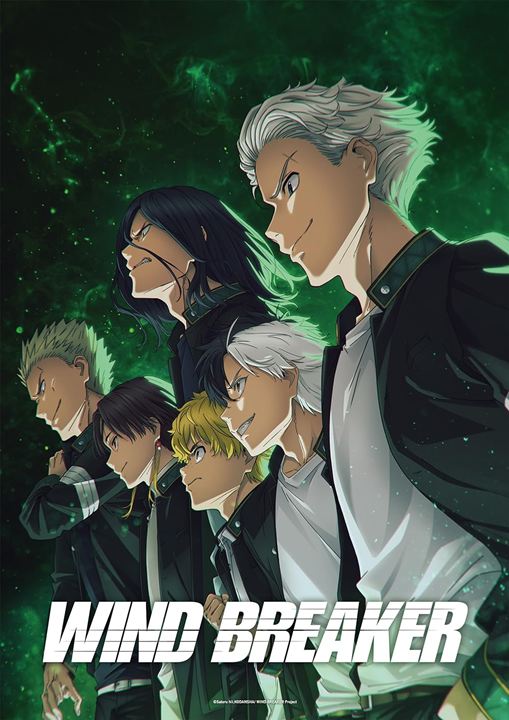
Delinquents are a pretty common sight in anime. From classic Shounen like Yu Yu Hakusho to more modern series like Tokyo Revengers, we get plenty of them every year. So standing out amongst the crowd can be pretty difficult for a show like this. Do you get weird with it like JoJo's Bizarre Adventure Season 4? Or more heartfelt and personal, like Great Teacher Onizuka? Regrettably, most shows never really figure that out. Whatever they try, most fall short and aren't able to separate themselves from the pack. Well today I'm here to talk about one that manages to do just that, though only barely. A delinquent battle shounen that tries its best to fly and, by the end, is able to fly on its own. Originally created by Satoru Nii, animated and adapted by Cloverworks, directed by Toshifumi Akai, and with music by Ryou Takahashi and produced by Shinji Yamauchi, I give you... Wind Breaker.
Be warned, this review contains minor unmarked spoilers for Wind Breaker. It also contains major spoilers in some sections however these will be heavily marked to avoid accidents.
Production As usual, lets start with something that's important for any anime, but especially so for flashy battle shounen, their production. Animated at CloverWorks, who are responsible for beautiful and well animated series such as Wonder Egg Priority and Bocchi the Rock, it shouldn't be surprising when I say Wind Breaker looks pretty good. It doesn't reach the same same levels of detail with its backgrounds and environments, nor is it quite as experimental with its animation, sure. Wind Breaker plays it pretty safe with both, staying well within the lanes and rarely doing anything too fancy. In doing so however, Wind Breaker's production manages to be consistent, remaining generally pleasant to look at at almost all times, never experiencing any kind of melt or fall off. Every episode has the same potential to pop off. Besides, there's one thing that Wind Breaker has over everything else this season: Fight Choreography.
Seriously, I cannot understate how good Wind Breakers fights are. From fluid full-body wide shots showing how every part of a characters body moves, to close ups with some pretty emotive facial expressions, Wind Breaker's action is top tier. What's especially nice about it though is that, compared to some of its contemporaries like My Hero Academia or One Piece, the fights are surprisingly grounded in reality. No insult intended of course, One Piece especially has been flying high recently with Egghead Island and Wano. But it's nice to have some more down-to-earth action for once. Fights where no one is "Supernaturally tough" or has named super moves like "Sky Shattering Fist" or other gimmicks. Wind Breaker is just normal dudes beating each other up. Sure, they occasionally jump to exaggerated heights for effect, maybe backflip into an axe kick or blow someone a few feet away with a punch, classic anime exaggeration. But comparatively, it's rather subdued. Powers wise I mean, these people absolutely get messed up.
This isn't to say Wind Breaker doesn't have some great visuals outside of the fights either. While not as experimental as Bocchi, generally staying on model and in style, Wind Breaker has a number of visual motifs and metaphors it often uses to spice up some of the more emotional conversations. The use of Light and Dark for mental states, walking on glass or a tightrope for precarious positions, the use of empty space for that feeling of being alone, composing a scene to really sell the size and support of the class, all the classics. And sure, none of these are really new, we've seen them before. But Wind Breaker executes on these established visual ideas pretty well, with some good direction to keep them interesting. All in all, Wind Breaker stands out primarily for its fight choreography and animation, doing just enough everywhere else to not drag those big action moments down. So if it's action you want, it has it, in spades.
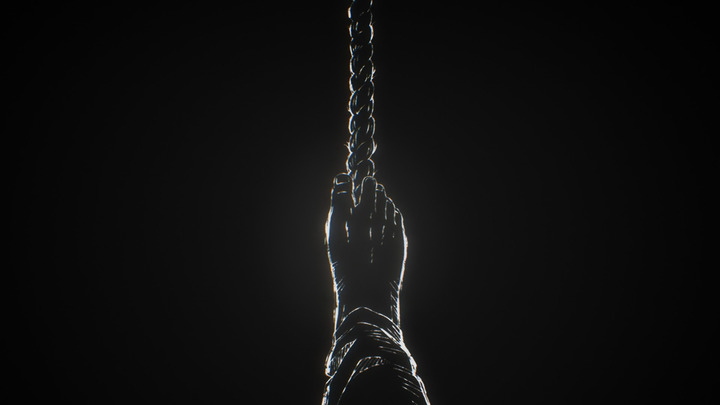
Narrative What is the action about though? Why are people fighting, what are they fighting for, who even are they? To answer those, lets talk about Wind Breakers narrative. At it's core, Wind Breaker's plot is pretty straight forward. It follows Haruka Sakura, a young delinquent with unique hair, who has come to Bofurin Highschool in his quest to be the strongest. Along the way he meets new friends, finds a place he can belong, and together they fight their way through various other highschool delinquents. Sounds pretty standard right? We get plenty of "I want to be the strongest" action shows, from Solo Leveling to Blue Lock, it's a common idea. What sets Wind Breaker apart though, or at least tries to, is how it frames this conflict. Because Wind Breaker is rarely about the individual. Rather, it's about this one single word/theme that encapsulates the entire show: community.
From the very first episode, Wind Breaker is more concerned with Sakura's relationship with those around him than it is with his strength. His combat ability is never in question, at no point does Wind Breaker ever ask if Sakura is strong enough to win a fight. In fact, the entire season takes place over... A week? Maybe two? And nowhere in it is there any kind of training or self-improvement arc. Rather, Wind Breaker asks where that strength comes from, what motivates Sakura and the other Bofurin delinquents to fight at all. It's this classic idea of the "weight" of someone's fist, that what they are fighting for is more important than their personal strength. Hell, in the very first episode Wind Breaker establishes that the only reason Sakura wants to be "the strongest" is because he thinks it will make people recognize and accept him, before realizing he can find that here in Bofurin along the way.
What I like the most about Wind Breaker's narrative though is that it's about more than just "The Individual vs The Collective". Those kinds of fights, the single strong loner losing to the combined might of the community, are again, pretty common. Instead, Wind Breaker's first big conflict is community vs community, highschool vs highschool, and how the attitude and leadership of a community can affect it's culture. It's more about the emotional strength and maturity required to recognize and confront the toxic elements of the community you love, as well as how hard that is to do for fear of destroying it, than it is any character's physical strength. It felt... novel. And while Wind Breaker still had plenty of the classic shounen trappings, turning bad guys into allies and large casts with unnecessary fights, the action I mentioned previously managed to hold it all together.
Really the biggest issue Wind Breaker has narratively is how it has tied itself the classic shounen formula of "Introduce new villain -> Confront villain/Get more cast members -> Get villains backstory -> Defeat villain -> Repeat". This makes it predictable, and like some of the previous episodes or conflicts didn't have any lasting effect. Now since it's a single-cour show this problem isn't that big, but you can definitely see problems coming down the track with its already announced 2nd season. Additionally, due to being a single-cour show, most of the cast doesn't get fleshed out... at all. No arc, barely any personality, they are sort of just window dressing. Wind Breaker continues to introduce "core" cast members even in episode 11 for goodness sake. Before I dive to deep into the cast however, let me sum this section up: Wind Breaker shows a lot of promise with its setting and core story, it just gets bogged down in the trappings of the genre from time to time.
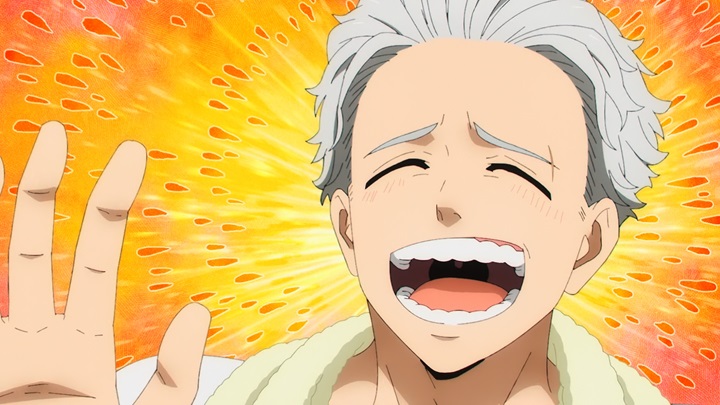
Characters Returning to the cast, this is where Wind Breaker is the weakest. Not necessarily because the cast is bad, I can only think of one character who is an active detriment to the show, more because most are barely characters at all. In fact, out of the entire cast, I can only think of three whom I would say are anything more than cardboard cutouts: Our lead, Sakura, the mentor, Umemiya, and the villain, Togame. Each of them fulfills their role exceptionally well. Sakura is that fish out of water, the excuse to other characters to explain things to the audience while still adding his own thoughts to the conversation. Umemiya is that pinnacle of strength, the embodiment of what Wind Breaker is trying to convey. And Togame? He's the one who didn't make it, who believed the same things as Umemiya but wasn't strong enough to protect it. They are great!
It's only when we start to look away from these core three that Wind Breaker's cast starts to fall short. From Nirei to Sugishita, Suou to Hiragi, and all the others in between. None of them are really characters, closer to one-note cardboard cutouts really. Now this isn't entirely their fault, there are ideas there, hints of the characters they could become. It's just that Wind Breaker doesn't give them the same time or attention as the other three. It makes sense, Sakura, Umemiya and Togame are the most thematically important characters of the season. However that doesn't change the fact that Wind Breaker is throwing 20+ characters at the viewer and expecting us to remember and care about them. The one exception to this is Choji, and that only because a bad character is still technically a character, regardless of how much we might wish otherwise.
Now to talk about Choji in any meaningful way, I need to dive into some spoilers. So if you've watched the show, or just don't care about being spoiled, feel free to click in and read. Otherwise, just know that Choji is meant to be the primary antagonist of the season, the antithesis to Umemiya and his community-centric philosophy. Yet he's upstaged entirely by his second-in-command, Togame, and ends up coming off as nothing more than a petulant child with the depth of the most forgettable Shounen villains. He is, in every respect, a disappointment.
The main issue with Choji is that Wind Breaker back-loads everything interesting about him. He's introduced as this combat-pilled sociopath who cares for no one but himself. Someone who wants to fight Umemiya not because of any ideological difference or personal grudge, but because it will make him feel better. It's only once this fight begins, late in the season, that Wind Breaker starts trying to do anything with him. And what do they go for? They try to make him sympathetic, to forgive everything he's done in his quest for the top. Everyone is understanding of his actions, of his treatment of those beneath him, welcoming him back as years of issues are undone in a single fight. It's... Underbaked and undeserved if you ask me.
Compare this to Togame, his second-in-command. While they start much the same, both thirsty for combat, the cracks in Togame's facade quickly become apparent. It's obvious he doesn't enjoy it, that he does this for Choji, that he truly couldn't care less about the fight if it's for the wrong reasons. We see how he sticks around and takes everything onto his own shoulders to protect a community he cherished so much. All the while he's forced to watch it be corrupted right in front of him, only ever able to slow the descent, never reverse it. Yes, both Togame and Choji's stories are delivered through flashbacks. Yes, both of them are the same basic archetype of a tragic villain to be turned ally. And yes, both of them are inspired by fighting the heroes. The difference however is in how they get there, and whether or not it's earned.
All in all Wind Breaker's cast is decent where it matters, mediocre where it doesn't, and downright disappointing in only a single spot. As a lead Sakura is quite fun and satisfying to watch, whether he's punching someone's face in or figuring out how to talk to people who actually treat him well and depend on him. He definitely has personality, even if it's an abrasive one that is slowly getting sanded down by those around him. Meanwhile Umemiya is an inspiring mentor and Togame a beautifully tragic villain doing his best to hold on to something he loves. So yeah, overall? It's not bad. Not great, could definitely use a Season 2 to flesh most of them out, but not bad.
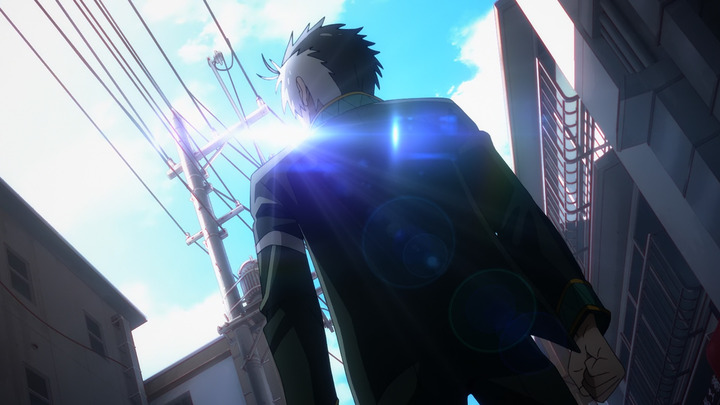
OST Finally we have the OST, the last real section of this review. Partially performed by Ryou Takahashi, directed by Keiki Nishida and produced by Shinji Yamauchi, Wind Breaker has a generally decent track list. Regretfully, those tracks haven't been officially released, so I can't provide you with many links nor names. Those I can give you though aren't bad! The big standouts for me would have to be "Conversation", an emotional and atmospheric track that accompanies the end of the best fight of the series. Wind Breaker also has more light hearted background music like the funky "At Cafe Pothos", which is just fun to listen to. And when it needs big, hard to miss vocal tracks? It has "Stronger", a nice power ballad for *Wind Breaker bust out when it needs something a tad more epic.
That said, those three are sort of the core of Wind Breakers music. Other than them, the record doesn't have anything particularly memorable. There's some generic rock with songs like "Call my Name", "Upheaval" and "Higher I'll Go", as well as some space-filling background tracks like "Supersonic". There's even an unnamed emotional, but ultimately not very memorable, lament that I sort of like. But none of these can really compare to the main three I linked above. I wish I could listen to the entire OST, just to make sure I'm not missing anything, but seeing as how I can't find a complete copy I'm going to have to settle for these eight.
All in all, Wind Breakers OST seems to do its job, but not much else. This isn't something I'd ever seek out a CD for, nor will I remember it years after the fact like say... Megalo Box. In-episode it's used well enough, augmenting the scene and generally not taking away from anything. But it rarely elevates them like I would hope, and isn't worth listening to on its own either. All around, it's just sort of... fine?
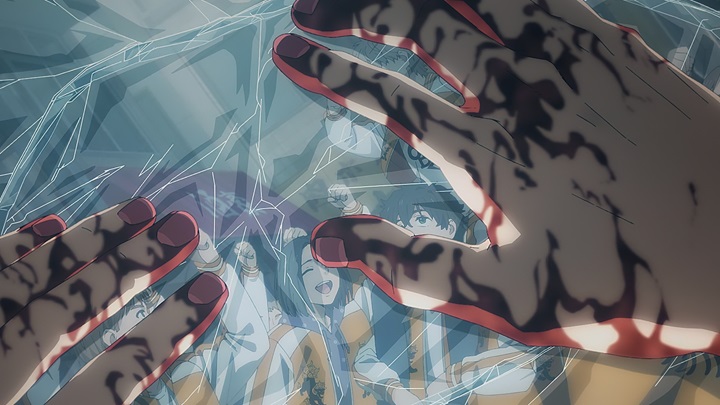
The Search for Community With that we come to the personal section of this review. This is where I drop the reviewer hat and just try to talk to you about my experience with Wind Breaker. This is a spoiler-heavy zone, no holds barred, so if you haven't seen the show and don't want to know what happens, skip it. It's mostly going to be talking about Togame and Sakura again anyways. So with that, in we go!
Now where to begin... For all it's problems, for how limited it is by the one-cour length, for how bogged down it is by standard shounen tropes, Wind Breaker has something that many recent shounen like Kagurabachi or Kill Blue lack: Heart. From the very first episode it felt like Wind Breaker had something to say, a message it wanted to convey about how we treat those who don't conform and the communities they build with each other. Watching Sakura try to navigate this new environment, slowly figuring out that people see him not as a thug, but a protector due to his Bofurin jacket, that here his strength is a comfort to those around him rather than distressing, was really nice. Usually in these situations it's the MC building their own community, gathering others around him, rather than joining and finding a place in an existing one.
And what a community Sakura found. Bofurin doesn't try to change, or really even control, it's members. At the end of the day, they are still delinquents, their school is covered in graffiti and they are still a violent bunch. Rather, Umemiya simply tries to direct their violent tendencies, to point them in a direction where their skills and personalities can be put to good use. Do you like to fight? Are you abrasive? Then go fight the people harassing the local shops, go beat up those that deserve it rather than people just living their lives. And from there, the goodwill started to grow, the delinquents and the locals started to come together as a single community. It's not about pushing away those who are different, or forcing them to change to fit your ideal. Rather, you need to find how they can best contribute as they are now.
As good as that is though, what really sells it for me, what completes what Wind Breaker is doing, is how it contrasts Bofurin with the Shishitoren and, by extension, Togame. Through them, we see how a community that loses sight of what it was becomes a stain on its surroundings, how it brings everything within and without it down. How important it is to push back when you see something vile begin to take hold, how you shouldn't accept the corruption just because you're afraid to lose what you had. It's actually really tragic, because Togame is, in a lot of ways, just like Sakura. They both found a home, found people who made them feel welcome, and it's natural to want to support them no matter what they do, to trust in them even when they are doing something you think is wrong.
It's this focus on not just the shounen "MC Squad", but the community at large and what it means for each individual, that really pulled me into Wind Breaker. There are so many ideas for it to explore, so many classic tropes like the Lone Wolf or a Cult of Personality that, while not uncommon in anime, would interesting to watch through Wind Breaker's unique lens. So long as it can avoid more Choji's, characters who lack any sort of meaningful connection to their community or who simply don't deserve the sympathy Wind Breaker tries to give them, it has a pretty promising future.
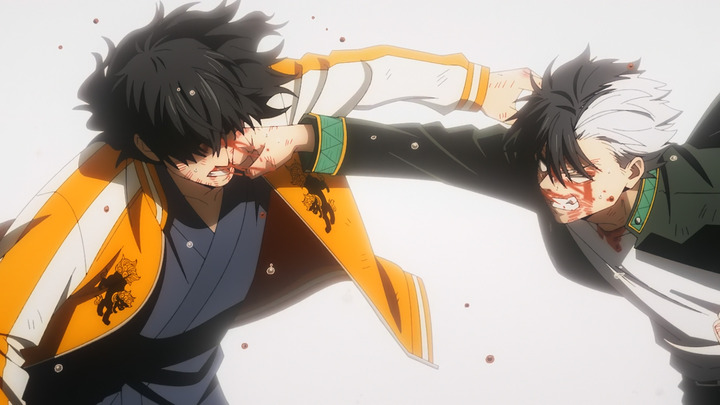
Conclusion So yeah, all in all Wind Breaker had a pretty promising first season. While visually the only memorable thing about it is the fight choreography, the narrative and characters (mostly) have a lot of promise. If it can refine these ideas, can break from the common shounen trappings, and choose its villains a tad more wisely, I think Wind Breaker could carve out a niche for itself in the market. It definitely stands out to me more than Kimetsu no Yaiba's recent seasons, which have focused more on flashy effects than a meaningful story. Do I recommend you watch Wind Breaker? If you're looking for some solid hand-to-hand combat, or are willing to make an early investment in a long-running shounen, then 100% I do. A 2nd season was already announced, and meaning if you enjoy Wind Breaker, you already have more on the way. That always makes it easier to recommend something, knowing you won't be waiting forever for more of what you love.
Thanks for reading! If you want to leave a comment, positive or negative, you can leave it here.
SIMILAR ANIMES YOU MAY LIKE
 ANIME ActionTokyo Revengers
ANIME ActionTokyo Revengers ANIME ActionDurarara!!
ANIME ActionDurarara!!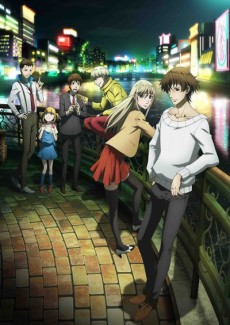 ANIME ActionHakata Tonkotsu Ramens
ANIME ActionHakata Tonkotsu Ramens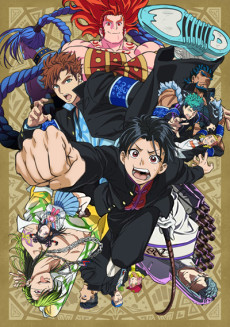 ANIME ActionBUCCHIGIRI?!
ANIME ActionBUCCHIGIRI?!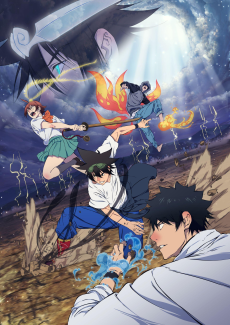 ANIME ActionTHE GOD OF HIGH SCHOOL
ANIME ActionTHE GOD OF HIGH SCHOOL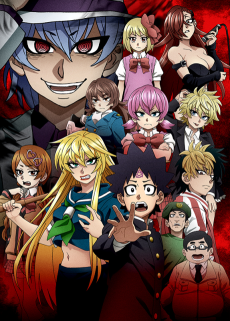 ANIME ActionRokudou no Onna-tachi
ANIME ActionRokudou no Onna-tachi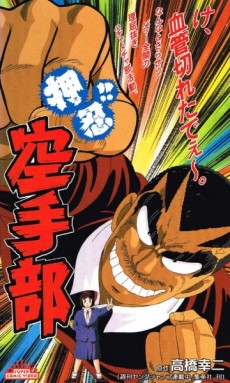 OVA ActionOsu!! Karate Bu
OVA ActionOsu!! Karate Bu
SCORE
- (3.9/5)
TRAILER
MORE INFO
Ended inJune 28, 2024
Main Studio CloverWorks
Trending Level 22
Favorited by 3,925 Users
Hashtag #ウィンブレ


